Ruchira interviews Suchhanda Ghosh, a promising Rabindra Sangeet exponent, who also teaches Political Science in a reputed college in Kolkata. A glimpse into her life and times, exclusively for Different Truths.
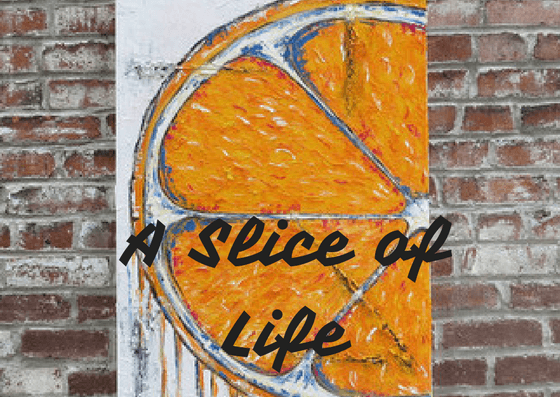
Her voice is remarkably different from those of most other women vocalists. It is powerful and clear, albeit with a slight husky tinge, that goes to enhance its appeal to the audience. She was born in a home whose walls reverberated with the sound of music all day long. Her name translates into Rhythm. Meet Kolkata-based crooner Suchhanda Ghosh, the pivot point of whose life appears to be none other than Tagore. She is also an associate professor teaching political science in a reputed college in the city. During her musical journey she already has ten musical CDs under her belt and aspires for more…

Ruchira: Tell us about your background, early years, family, education etc

Suchhanda: I grew up in and have lived all my life in Kolkata. I found myself surrounded with music at home. My mother, Lipika Ghosh, was a trained singer and a music tutor, who headed an organisation under the banner of Srijon. Apart from Rabindra Sangeet she dabbled in diverse kinds of music. I would keenly observe and marvel as to how she dexterously handled all household responsibilities along with rehearsals public performance and programmesinvolving well-known musical personalities. My father too enjoyed music a good deal though his prime focus was on handling the academics for me and my older sister, who currently teaches South Point School, Kolkata. I attended Gokhale Memorial high School followed by Presidency College and the University of Calcutta.

Ruchira: Who / what attracted you to music?

Suchhanda: You could say I was born with music. To put it differently, music runs in my blood. I grew up in a musical ambience at home and in our daily life; I constantly watched my mother’s pupils walking in and out, rehearsing and so forth. I observed them and tried to imbibe the spirit of music within my being. Surprisingly my mother never tried making me sit down with her and learn how to sing. What we term taalim per se came much later when I was more grown up. However, in spite of being my mother’s daughter I was not given any special treatment. Just like everyone else I would join in the choruses. Also, I would accompany my sister to her dance classes. There I would observe from a distance and try to imbibe the rhythm and movements within myself. That’s how it went on.

Ruchira: Describe your musical journey.

Suchhanda: My musical journey is an ongoing process. And so far it has been a happy one. I have really enjoyed this ride with music. My first guru was my mother of course. Later, after I graduated from High School, I began my training under the tutelage of Bani Thakur, a noted exponent of Rabindra Sangeet, who incidentally was also my mother’s guru. It was an enriching experience for me. Her music school, Kingshuk, enjoyed pride of place in Kolkata, during its heydays. A huge number of musical luminaries were associated with it. I was fortunate to come in contact with such eminent personalities.
I must mention a highly memorable incident here. One year, during Rabindra Jayanti celebrations, Kingshuk was presenting the dance drama titled, Kalmrigaya. In my role as Rishi Kumar, I was cast opposite the legendary veteran Ashoktoru Bandopadhyay, who played Andha Muni (blind sage). I was made to rehearse my part alone and had no face-to-face interaction with Shri Bandopadhyay. Yet, when the drama finally unfolded onstage, my dialogues matched his perfectly just like a jigsaw puzzle. Nobody would believe we had not rehearsed together! It was indeed my proud privilege to have performed alongside a stalwart of his stature. During my tenure there, I also participated in other notable productions e.g., Barsha (monsoon) songs, Shyama, and many more…I am mighty obliged to Bani difor teaching me the nuances of performing art, which is of utmost importance for any artist. I also received training from other music doyens like Maya Sen and Subhash Choudhury. Later, I obtained a graduate degree from Gitobitan, which is probably the oldest Rabindra Sangeet institute in Kolkata.
My other mentors include Ashish Bhattacharya, and Rama Basu. I trained in classical music under Mallar Basu; after his demise I continued under Anindya Bandopadhyay. I also had brief learning stints with Biman Mukhopadhyay and Dilip Mukhopadhyay. Dhiren Basu was my mentor for Nazrul Geeti. I also had brief brushes with other musical categories, i.e., songs of Atul Prasad and Rajanikanta.
I have appeared in numerous (musical) Breakfast Shows hosted by private TV channels viz Akaash 8, Ruposhi Bangla. I have performed in myriad shows hosted by various government organisations. Interestingly, I directed and created a musical opera ‘The Mata’ revolving around the life of Mata Hari, the globally notorious and voluptuous Dutch courtesan, who was convicted of being a spy for Germany during World War I. I was privileged to be part of the grand gala musical shows, which were compered by stalwarts like Rudraprosad Sengupta, Debshankar Halder, the late. Soumitra Chatterji, among many. Overall, it has been an exhilarating experience for me.

Ruchira: Which genre of music is your forte?

Suchhanda: Honestly, I have had the maximum exposure to Rabindra Sangeet from the very outset. Even in terms of formal musical training it has been mainly Rabindra Sangeet. I am most comfortable singing Rabindra Sangeet. So yes (laughs), you could say it is my forte.

Ruchira: Your views on Tagore and his music.

Suchhanda: This topic is as vast and unbounded as the ocean. I am at a loss of words to describe his persona in a befitting manner. True to his name, Tagore is the resplendent sun and our lives illuminated by his radiance. Singing his songs is like pooja (ritual worship) or prayer that fills one’s heart and mind with peace. It is spiritually fulfilling.

Ruchira: What is music to you?

Suchhanda: It is a spontaneous outpouring of the heart. It is not beyond or below life, it is life itself.
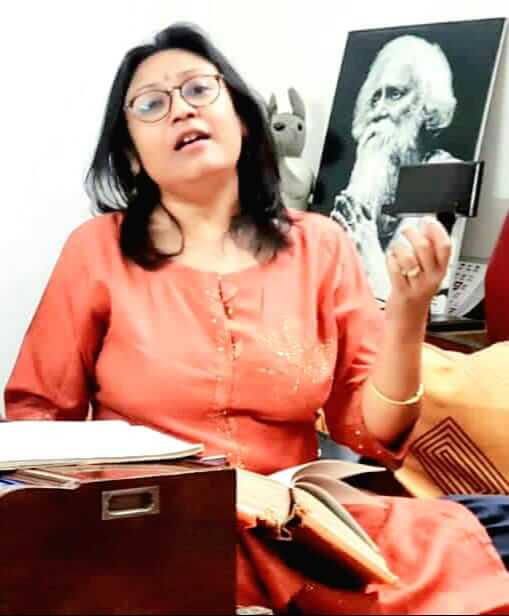

Ruchira: Your favourite singers?

Suchhanda: Well, that’s a difficult question to answer (laughs). There are so many of them and it would be tough and difficult to identify favourites. Thanks to my mother we had tremendous exposure to a vast and wide range of vocal music. Nothing was dumped on us. Listening to music was major activity for us. I greatly admire Suchitra Mitra, one of the renowned exponents of Rabindra Sangeet. There is Debabrata Biswas, a perennial favourite of the masses. Nor can anyone overlook Hemanta Mukherji and Chinmoy Chatterji. Each one had carved a niche for himself. Another highly attractive voice is Sagar Sen’s. Among old timers, there is Mohd. Rafi and Kishore Kumar and Manna Dey. Another favourite is Gita Dutt. I find her voice mesmerising. Yet another distinctive voice is that of Talat Mehmood. Lata Mangeshkar, Sandhya, Arati Mukherjee, Purba Dam, Swagatalakshmi Dasgupta and many more figure on my list. I also enjoy ghazals and bhajans.

Ruchira: Awards and accolades won so far?

Suchhanda: No reputed award per se. I have had several good reviews about my style and performance in some of the leading Bengali dailies published from Kolkata, e.g., Aajkal, Bartaman, etc. Also was among topmost talented singers in several competitions held by the Rajya Sangeet Parishad of West Bengal. But there is one incident, which gave me a sense of fulfillment. Once, after a function at Rotary Sadan, while I was on my way out, I was accosted by a Safai worker, who told me that I had sung very well, and he had enjoyed it very much. It had gone off well, but such a spontaneous comment elicited from an individual thoroughly unschooled and untrained in music touched my heart very deeply. It was unforgettable.

Ruchira: Some notable/ memorable performances.

Suchhanda: Since childhood I have had so many stage performances that I almost seem to lose count of them. I have featured in numerous dance dramas penned by Tagore – Chandalika, Chitrangada, Bhanu Singher Padavali and more. I recall a few recent ones. There was one programme in Bangladesh coinciding with Pohela Boishakh (new year). The massive turnout of the public was indeed overwhelming. Another was a function at the Bishnupur Mela. As far as the eyes could see there was a vast sea of humanity. It was really awesome. During the pandemic last year, when spirits were low and depression high, we had a function to celebrate 22e Shrabon. Sujoy Prosad Chatterji (abbrev. SPC) collaborated with me on this occasion. Around that time, our SPC kraft came up with another interesting production captioned, Robi o Rothi highlighting the mutual ties between Tagore and his son, Rathindranath.
Yet another interesting programme (which upheld the guru-sishya parampara) was staged again in Bangladesh as a tribute to the musical Colossus Sailoja Ranjan Majumdar, a close associate of Tagore. Our troupe visited Majumdar’s ancestral home in Netrakona. It was a mind-blowing experience. The leading artist on this occasion was Majumdar’s prominent disciple Ashish Bhattacharya. By sheer coincidence, he happens to be my guru too! So, this is unforgettable.

Ruchira: Any competitors or rivals in your music career?

Suchhanda: The answerisabig ‘No’. For the simple reason that I sing for the sheer joy and happiness that it affords me. I do not care about anything else, who is doing what, how others fare in the arena of music, who forges ahead or who lags. Hence the question of rivalry does not arise at all.

Ruchira: Political Science is a mundane subject while music is linked with emotions and passions. How do you strike a balance?

Suchhanda: Apparently it seems a mundane subject but having said that these subjects sustain each other. You could say both complement each other. True, politics is entwined with our daily lives; yet political science is distinctly different from politics. We are taught diverse political theories which are rather philosophical in content. And this philosophical aspect greatly appeals to me. From another angle: assuming that it is mundane after all it is music which restores the balance and equilibrium. After a hard day’s work, involving lectures and checking answer books, etc., I feel instantly energised if there is musical show coming up in the evening. In other words, I think because I have another vocation, I am able to enjoy music better.

Ruchira: Your lifestyle, work schedule: juggling teaching, musical performances.

Suchhanda: Well, I am fortunate enough to receive unalloyed cooperation and support from my colleagues both in the fields of music as well as college teaching. I believe that to do justice to both you need to manage your time carefully and suitably. Next, you also need to prioritise all the tasks in hand. Handle each task with utmost devotion. These factors will help to ease the situation. On a personal note, since I work in a morning college, I am free by the afternoon; therefore, I can snatch a bit of rest before my shows in the evening.

Ruchira: Your hobbies?

Suchhanda: Music has been my greatest hobby, naturally. Besides singing, I like listening to all kinds of music. I enjoy watching lots of movies and I also enjoy reading novels and poetry. Reading is vital to me both as a hobby and as a part of my profession. Another hobby is chilling out with friends.

Ruchira: A bit about your personal life.

Suchhanda: My husband Biplob Kumar Ghosh is a journalist. He was earlier with the ABP group. Presently, he works for Ei Shomoy (Times Group). I have a ten-year-old son and we live together in a joint family. I am grateful to the family members for their understanding and utmost cooperation. It is a matter of great confidence for me. No hurdles to cross. Even my son is growing up to be a sensible kid. He is not demanding at all; never throws tantrums regarding my activities, movements or the quality time I am able to spend with him. I am thankful for the overall situation.
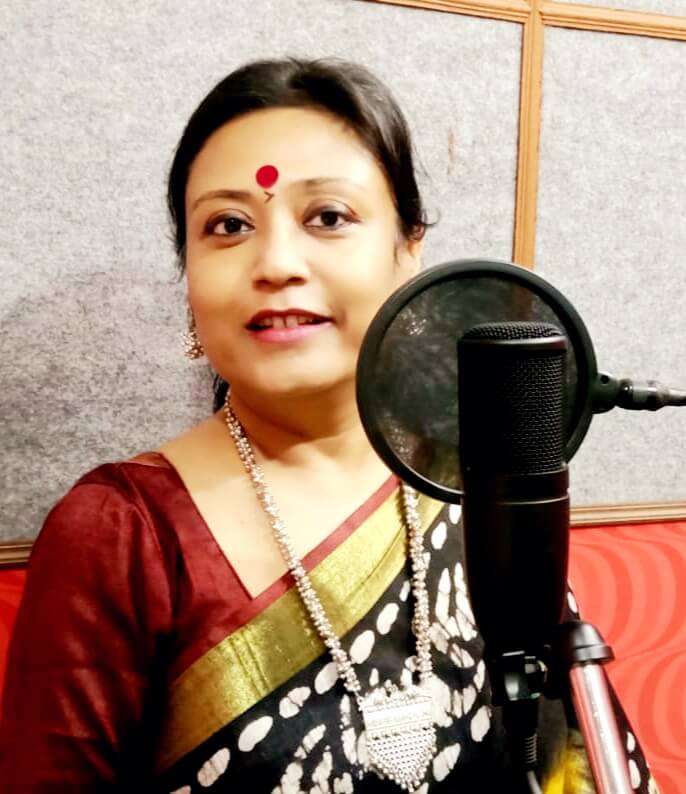

Ruchira: What do you feel is the future of vocal music in Bengal /India?

Suchhanda: With my limited experience, I feel I am not competent enough to comment on the overall present scenario. Nonetheless, I can perceive stagnation creeping in. You don’t see any outstanding or spectacular creations as such; new creations tend to be repetitive. Though people might be trying hard, yet the impact of these works tend to be short-lived. Any quality work ideally ought to be a harmonious blend of katha (lyrics), sur (tune), presentation and music arrangement in adequate and right proportions. All these components are not jelling properly, and the result is a nebulous picture. This is about Bangla songs (including film songs), in general. However, in the case of Rabindra Sangeet, the picture is slightly rosier. The young generation is imbibing the subtleness and nuances of the songs with great enthusiasm.

Ruchira: Any regrets in life?

Suchhanda: None. I must confess whatever I have done in life I feel it was the best option I had at that point of time. I have made several mistakes, and taken wrong decisions in life, the way all human beings do. But fortunately, my parents taught me the art of damage control and how to salvage the situation. Interestingly, in this regard Tagore’s songs had a key role to play. Their sublime philosophy helped me to find my way from darkness unto light.

Ruchira: What are your plans for the future?

Suchhanda: There is this old saying, “Man proposes, God disposes.” One must always keep this in mind. I only make plans for one day at a time. No long-term plans for me. In the future, I want to enjoy life to the hilt, and fulfill my heartfelt desires. So far, I have discharged my duties and responsibilities. Not done too badly either. Now, I want to enjoy it with no strings attached. I enjoy travelling. After I retire and manage to have some savings, I plan to travel extensively.
Secondly, I wish to concentrate on Tagore’s dance dramas and geeti natya (opera) and undertake some recorded work in this sector.
I had earlier conducted a workshop on Tagore’s dance drama at the Rabindra Bharati University. It was a memorable experience and I enjoyed it immensely. So, I want to explore this area further. That’s because to me Tagore’s dance dramas are virtual kaleidoscopes encompassing all art forms – dance, song, costume, stage, drama, lighting, etc.
I also plan to revive my mother’s brainchild Srijon, which was in disarray after she passed away a few years ago. In fact, during the Pandemic situation I managed to do some offbeat work on behalf of Srijon. I conducted a three-day webinar on (1) Tagore & classical music, (2) Tagore’s songs in films, and (3) Tagore & scientific thought. Many distinguished thinkers and speakers were present on the occasion. It was a grand success. I wish to undertake a few more projects along these lines.

Ruchira: Any message to your fans?

Suchhanda: I do have some dedicated (laughs) regular listeners who love my renditions and give regular feedback. But they are neutral in their assessment. I request everyone to please listen to more and more of various kinds of music. The more you listen the more you will be able to judge the quality of work. My message to all my well-wishers: please identify my flaws or lacunae wherever possible and send me your candid feedback. Trust me, I shall be mighty glad. As long as my mother was alive, she never went gaga over my singing. All she would say was “this could have been done better” or you should have done it this way.” I am sure your heartfelt sincere feedback will help me to erase my flaws and perform better.
Photos sourced by the interviewer from the interviewee

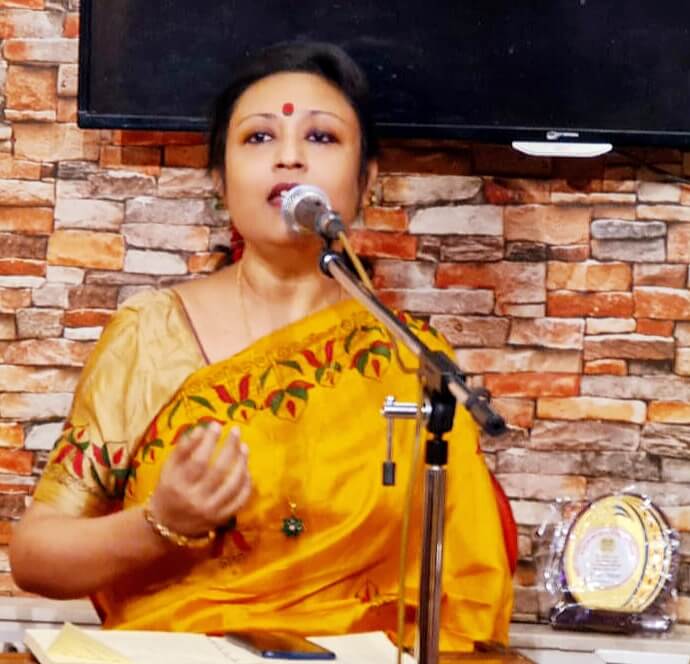



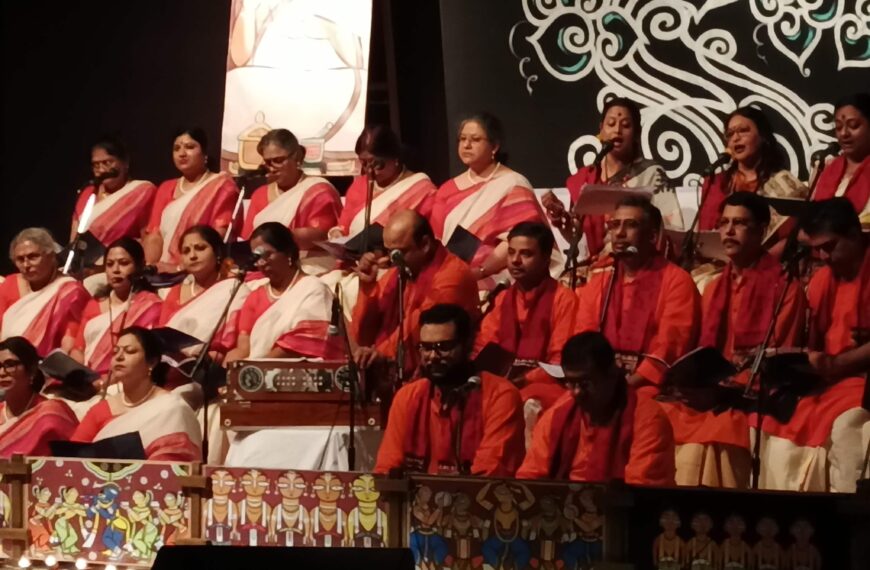
 By
By
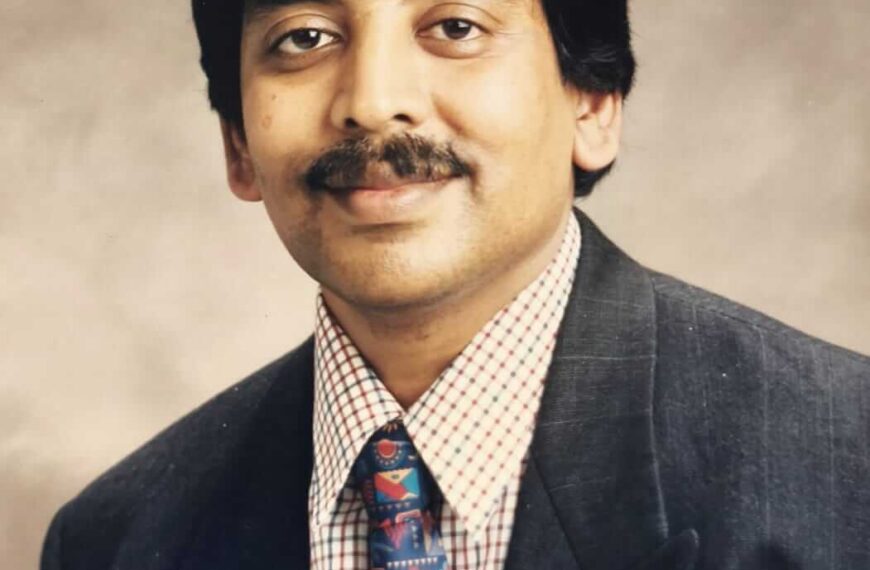
 By
By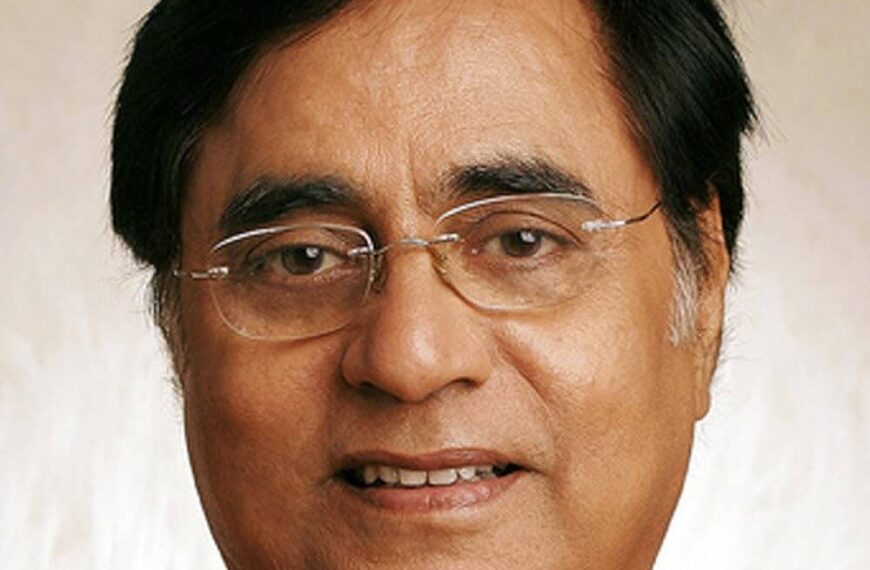
A candid and thought-provoking piece of interview.